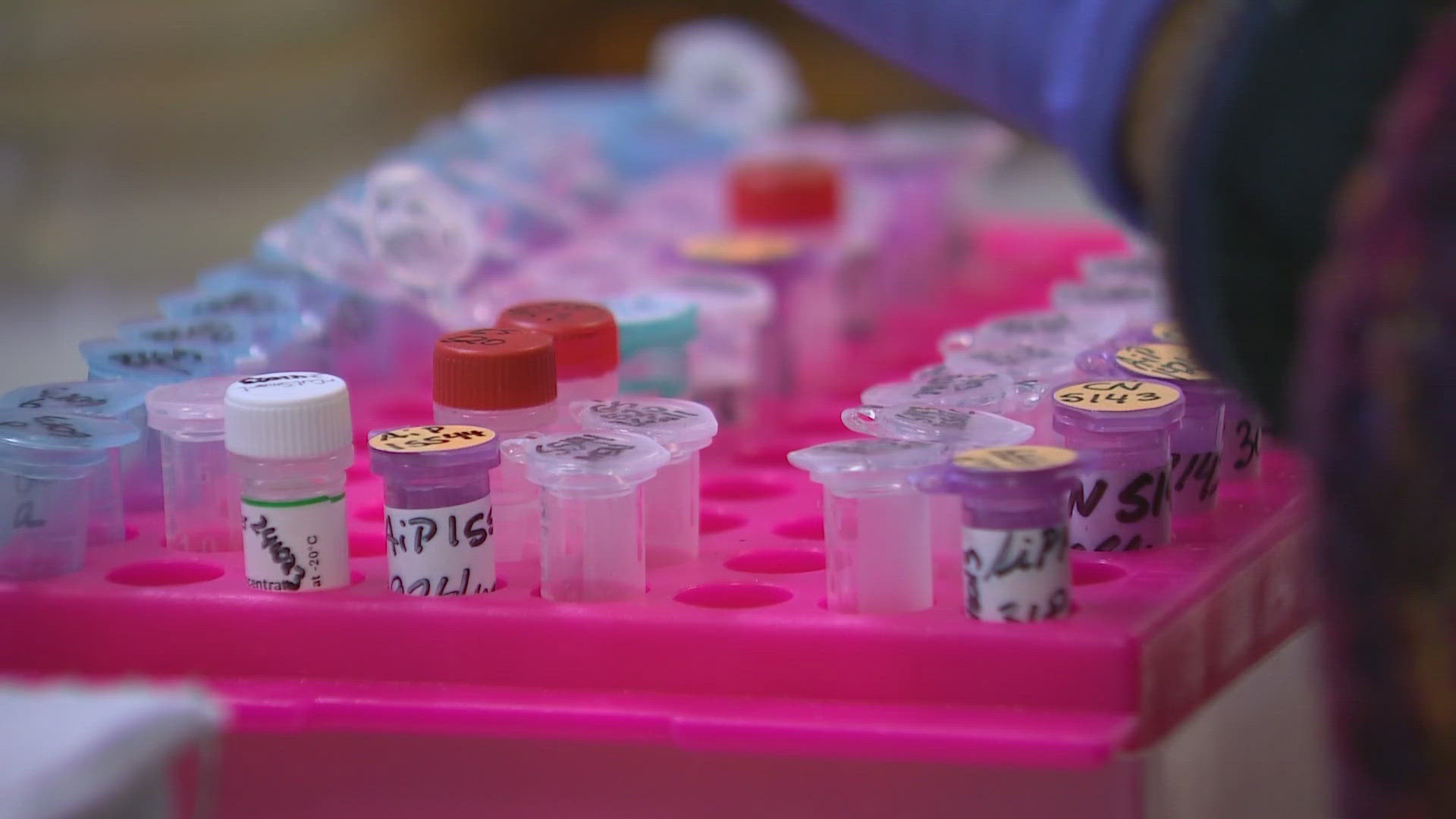SEATTLE — New research at the Allen Institute in Seattle reveals cellular changes in the brain, providing a more detailed picture of how Alzheimer's disease progresses.
Scientists analyzed 3.4 million cells from 84 donor brains and created a detailed map of the damage that occurs during the disease, which is the leading cause of dementia for people 65 and older.
"So we looked at those brains and we extracted the cells from the tissue, looking at also the pathology, and try to put together a map, mapping how the pathology and the cells are being affected and are interacting," said Mariano Gabitto, Ph.D., a lead author and assistant investigator at the Allen Institute. "We were able to pinpoint the first types of cells that were being impacted, which ones are the first neurons that are dying as Alzheimer's was taking over the brain."
The study published this month in Nature Neuroscience unlocked a surprising discovery. Researchers identified a specific type of inhibitory neuron as one of the earliest cell types that is lost in Alzheimer's. Identifying the loss of those cells in the first phase of Alzheimer's disease could lead to early intervention.
"If we can find a biomarker, for example, that lets us see if this is happening in someone who is very early (in Alzheimer's) while they're alive, then we could develop a therapeutic that we could give to them to stop the loss of those neurons," said Kyle Travaglini, Ph.D., a lead author and scientist at the Allen Institute.
For decades, scientists focused on the buildup of proteins that could be the cause of Alzheimer's. New technology is giving scientists an unprecedented high-resolution view of how Alzheimer's impacts different cell populations.
"We're really just trying to think of Alzheimer's disease, both as a disease of how proteins are building up, but then also a disruption into how the neurons in our brains are actually communicating with one another," said Travaglini.
The findings could help researchers develop treatments and ultimately prevent cognitive decline that happens in people with Alzheimer's. The study was conducted in partnership with UW Medicine Alzheimer's Disease Research Center and the Kaiser Permanente Washington Adult Changes in Thought.

